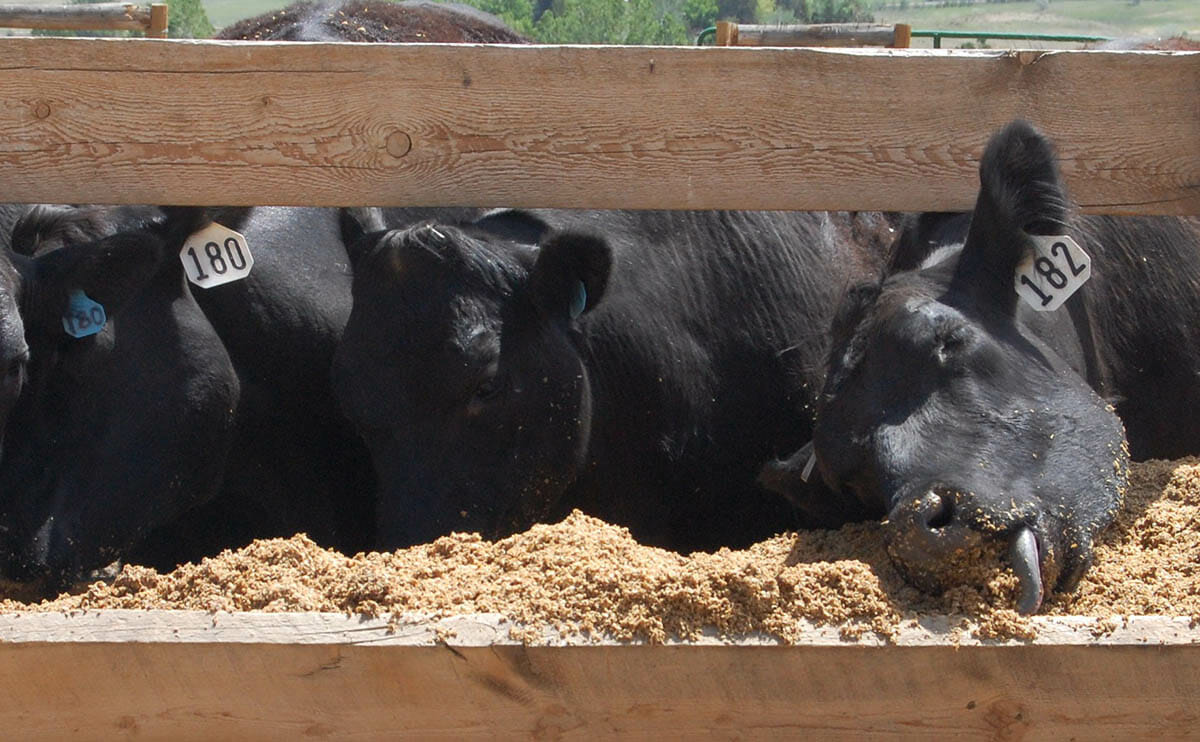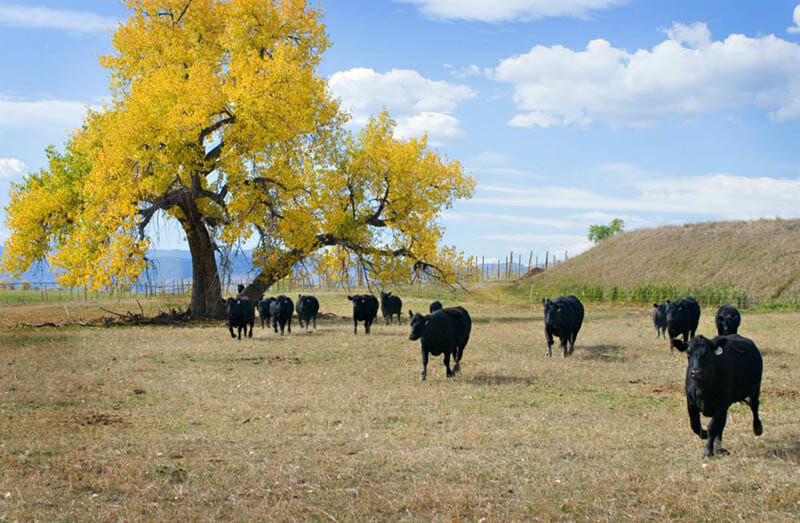Farmers and Brewers Unite Against FDA to Defend Ancient Alliance
After all, a brewer's trash has long been a farmer's treasure. Beer makers mash grains to pull out desired sugars, starches and proteins, leaving behind loads of soggy spent grains...
Farmers and Brewers Unite Against FDA to Defend Ancient Alliance
After all, a brewer's trash has long been a farmer's treasure. Beer makers mash grains to pull out desired sugars, starches and proteins, leaving behind loads of soggy spent grains...

After all, a brewer’s trash has long been a farmer’s treasure. Beer makers mash grains to pull out desired sugars, starches and proteins, leaving behind loads of soggy spent grains. The stuff doesn’t do any good for the beer makers, so farmers have taken it off their hands for a while now. Since, say, the Neolithic Era and the early days of agriculture.
That’s because the spent grain makes a great, high-protein addition to the feeding trough. The high water weight means the feed doubles as a hydration source for animals, but wet feed with a short shelf life also keeps arrangements between farmers and brewers local. From Maine to North Carolina, farmers pick up the grains or accept truck loads of it a few times a week. Handshakes, not cash, often form a basis for the agreements.
Oskar Blues Brewery of Longmont, Colorado has taken the relationship one step further by incorporating a farm into the brewery operation. The brewery made its mark going against the grain, being one of the first to sell craft beers in cans. Now, they are trying to build on the success by working with the grain they have.
Part of the spent grains from their quickly growing operation supplements the diets of Black Angus cows at the company’s Hops and Heifer Farm at the base of the Rocky Mountains. Meat from the farm then supplies restaurants also attached to the brewery.
Geoffrey Hess runs the farm as Oskar Blues’ Manager of Chains, Grains and Trains. He loves taking the spent grains to his Black Angus cows when the slop is still warm from the brewery.
“In the winter, when you give them a nice warm shovel of this brewers grain it’s like a nice bowl of oatmeal,” he says.

The proposed FDA rule would make the conversion of the grain to feed considerably more expensive for Hess and brewers across the country.
As a part of the FDA’s response to the Food Safety Modernization Act, the rules would require any one making animal feed to minimize dangers according to a hazard analysis and have careful records in keeping with a food safety plan.
One section of the rule, proposed last October, pays particular attention to brewers: the “FDA understands that many breweries and distilleries sell spent grains … as animal food. Because those spent grains are not alcoholic beverages themselves, and they are not in a prepackaged form that prevents any direct human contact with the food, the Agency tentatively concludes that subpart C of this proposed rule would apply to them.”
Paul Gatza, director of the Brewers Association, says the rule as it stands leaves brewers with two expensive options.
They could send the spent grains to a landfill at an estimated cost of about $2 per barrel of beer. Or, if brewers wanted to save some the waste for some practical use, they would need to dry and package the grains for about $5 per barrel of beer.
In response, the Brewers Association asked its members to submit comments to the FDA before the comment period closes on March 31. The Master Brewers Association, American Malting Barley Association and the Beer Institute have all joined the effort along with the American Feed Industry Association.
“There’s going to be a lot of material for the FDA to go through,” says Gatza. He hopes that means the FDA takes time with their decision on the final rule.
Hess understands the FDA’s worry. He pays careful attention to the state of the brewers grain he feeds to the cattle at the Oskar Blues farm, making sure it doesn’t become too acidic for their digestive process. He throws it on the compost pile when it does.
But like many farmers and brewers, he doesn’t see why the grains deserve special attention when their safe storage and use has such a long, successful history.
“If you look across the board at what farmers are using to fatten up animals, brewers grain is far from being out of line as a product,” says Hess.
Follow us
This work is licensed under a Creative Commons Attribution-NoDerivatives 4.0 International License.
Want to republish a Modern Farmer story?
We are happy for Modern Farmer stories to be shared, and encourage you to republish our articles for your audience. When doing so, we ask that you follow these guidelines:
Please credit us and our writers
For the author byline, please use “Author Name, Modern Farmer.” At the top of our stories, if on the web, please include this text and link: “This story was originally published by Modern Farmer.”
Please make sure to include a link back to either our home page or the article URL.
At the bottom of the story, please include the following text:
“Modern Farmer is a nonprofit initiative dedicated to raising awareness and catalyzing action at the intersection of food, agriculture, and society. Read more at <link>Modern Farmer</link>.”
Use our widget
We’d like to be able to track our stories, so we ask that if you republish our content, you do so using our widget (located on the left hand side of the article). The HTML code has a built-in tracker that tells us the data and domain where the story was published, as well as view counts.
Check the image requirements
It’s your responsibility to confirm you're licensed to republish images in our articles. Some images, such as those from commercial providers, don't allow their images to be republished without permission or payment. Copyright terms are generally listed in the image caption and attribution. You are welcome to omit our images or substitute with your own. Charts and interactive graphics follow the same rules.
Don’t change too much. Or, ask us first.
Articles must be republished in their entirety. It’s okay to change references to time (“today” to “yesterday”) or location (“Iowa City, IA” to “here”). But please keep everything else the same.
If you feel strongly that a more material edit needs to be made, get in touch with us at [email protected]. We’re happy to discuss it with the original author, but we must have prior approval for changes before publication.
Special cases
Extracts. You may run the first few lines or paragraphs of the article and then say: “Read the full article at Modern Farmer” with a link back to the original article.
Quotes. You may quote authors provided you include a link back to the article URL.
Translations. These require writer approval. To inquire about translation of a Modern Farmer article, contact us at [email protected]
Signed consent / copyright release forms. These are not required, provided you are following these guidelines.
Print. Articles can be republished in print under these same rules, with the exception that you do not need to include the links.
Tag us
When sharing the story on social media, please tag us using the following: - Twitter (@ModFarm) - Facebook (@ModernFarmerMedia) - Instagram (@modfarm)
Use our content respectfully
Modern Farmer is a nonprofit and as such we share our content for free and in good faith in order to reach new audiences. Respectfully,
No selling ads against our stories. It’s okay to put our stories on pages with ads.
Don’t republish our material wholesale, or automatically; you need to select stories to be republished individually.
You have no rights to sell, license, syndicate, or otherwise represent yourself as the authorized owner of our material to any third parties. This means that you cannot actively publish or submit our work for syndication to third party platforms or apps like Apple News or Google News. We understand that publishers cannot fully control when certain third parties automatically summarize or crawl content from publishers’ own sites.
Keep in touch
We want to hear from you if you love Modern Farmer content, have a collaboration idea, or anything else to share. As a nonprofit outlet, we work in service of our community and are always open to comments, feedback, and ideas. Contact us at [email protected].by Sam Brasch, Modern Farmer
April 3, 2014
Modern Farmer Weekly
Solutions Hub
Innovations, ideas and inspiration. Actionable solutions for a resilient food system.
ExploreExplore other topics
Share With Us
We want to hear from Modern Farmer readers who have thoughtful commentary, actionable solutions, or helpful ideas to share.
SubmitNecessary cookies are absolutely essential for the website to function properly. This category only includes cookies that ensures basic functionalities and security features of the website. These cookies do not store any personal information.
Any cookies that may not be particularly necessary for the website to function and are used specifically to collect user personal data via analytics, ads, other embedded contents are termed as non-necessary cookies.